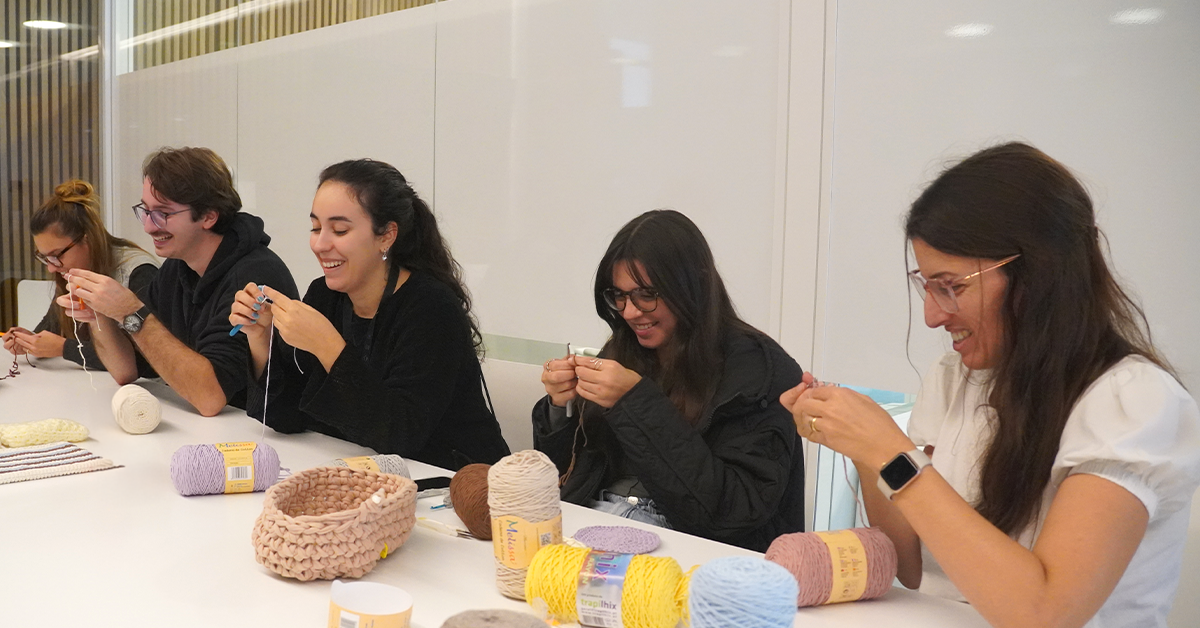The harmful effects of FOMO and six steps to overcoming it
FOMO - "Fear of Missing Out" or fear of being left out - is a psychological syndrome with real consequences for human beings. While it can stimulate curiosity and social engagement, it can be detrimental to anyone's mental health. These visible effects led me to ask myself: how can we mitigate the debilitating aspects of this phenomenon without underestimating the positive ones? In this text, I leave six concrete suggestions drawn from my career and connection to technology.
Let's start by unraveling the problem. The fear of being left out (or FOMO hereafter) is something common in our routine. It can be the impetus that drives us to leave the house for a social event or the instinct that drives us to up a bet when the game seems lost. Ultimately, it is the fear that we will miss an opportunity.
When we analyze the presence and impact of FOMO in the central decisions of our lives, it is easy to understand its power of influence. In the universe of technology, for example, the pace of evolution is dizzying. Whether it's a new language or framework gaining popularity, a new product or service launched, or an emerging technology that promises to revolutionize our work, it's easy to see the existence of FOMO and how it impacts people's lives.
Professionals caught up in the fear get stuck in a continuous learning cycle, which can have a milder impact when it becomes a constant distraction factor, or evolve into more serious states like burnout or depression.
But is FOMO inevitable for those working in technology? The simple answer is "no", but we need to have a plan and a lot of intentionality to stay away from the most harmful aspects of this phenomenon. As in any case of physical or mental health, the first step should always be to consult a doctor specialized in the area for diagnosis and appropriate monitoring of the situation. However, there are principles and habits that can help us keep our wits about ourselves and deal with FOMO in a healthier way.
Physical and mental health are intrinsically linked, and this makes any decision regarding physical health have a critical impact on mental health. An adjusted diet, regular exercise, and stable, healthy sleep habits are key to keeping our minds in the best shape possible.
Living one day at a time is another important principle in maintaining balance. "The future belongs to God" is a phrase often used in different contexts and is full of wisdom. If we live every day in a constant search to optimize everything, we do based on the infinite possibilities that tomorrow may bring us, we will always be worrying about possibilities that will never materialize and neglecting real problems that require our action today.
Greater social engagement emerges as a third weapon in this fight against FOMO. Reducing the time spent on social networks, and replacing it with socializing time in real life may seem difficult for some people, but human contact is key. Bonding helps us gain mental and emotional stability, and this will have a huge impact during periods of personal or professional doubt. Loneliness is one of the biggest factors causing FOMO.
Knowing when to say "No" is also decisive in combating the fear of being left out, since one of the most debilitating factors of FOMO is the fear of denying any opportunity that arises. Learning to recognize our limitations (of time, attention, or interest) is something extremely powerful for our personal and professional development, with consequences for both focus and confidence.
Ignoring the "grass is greener on the other side" mentality is another way to stay focused and avoid feelings of inferiority. When we expose ourselves to an endless amount of suggestions, we get the impression that the meadows are greener elsewhere. However, our meadows will be greener tomorrow if we take care of them today. Let's stop living preoccupied with constant comparison in a sense of inferiority, and let's invest in the present and expect to improve our tomorrow with the growth we build today.
FOMO can also arise from a poor career choice. Tech or not? That’s the question. I see more and more people interested in a career in technology, hoping to improve their quality of life, attracted by higher salaries and a greater number of job opportunities. Based on Confucius' famous quote - "Choose a job you like and you won't have to work a day in your life" - I wonder if this is the right choice for many of these people. No job will always be a bed of roses, but choosing a job solely based on financial compensation can quickly turn into a depressing "prison". We should therefore seriously consider every life or career choice we make.
In conclusion, FOMO can have positive or harmful effects on any professional, but it can also be mitigated. If we return to the fundamentals of life, work on emotional stability, and develop our intentionality in managing our personal life and career, we will be closer to overcoming the fear of missing out and living a balanced life, significantly increasing our chances of personal and professional fulfillment.
Opinion Article written by Levi Figueira for SapoTek
Looking for a job? Join Fabamaq now
With over 200 Gamers so far, Fabamaq has several IT jobs in different areas of operation. From mathematics to game development, passing through project management, and software development, there are a lot of job openings to explore. Do not miss out on what could be the jackpot of your career!



